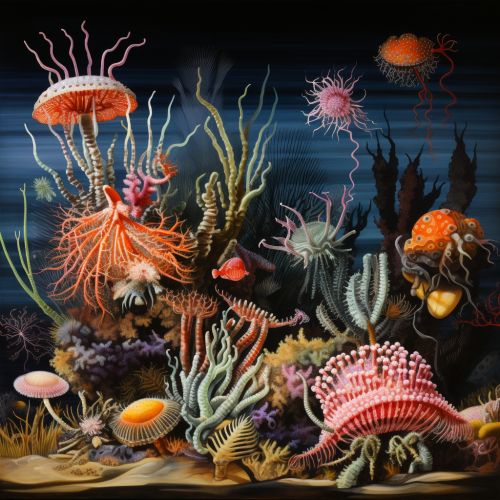Marine biotechnology
Introduction
Marine biotechnology, also known as blue biotechnology, is a field that involves the application of biotechnological techniques to marine and aquatic organisms. This discipline encompasses a wide range of applications, from the development of new pharmaceutical drugs to the enhancement of aquaculture production.
History and Development
Marine biotechnology has its roots in the early 20th century, when scientists first began to explore the potential of the ocean's biodiversity. The field has since grown exponentially, with advancements in technology and research methodologies paving the way for new discoveries and applications.
Marine Organisms in Biotechnology
Marine organisms offer a rich source of biological material for biotechnological applications. These organisms, which include bacteria, algae, fungi, and marine animals, possess unique biochemical and physiological characteristics that make them valuable in various industrial, medical, and environmental contexts.


Applications
Pharmaceutical Applications
Marine biotechnology has significant potential in the field of pharmaceuticals. Many marine organisms produce unique bioactive compounds that can be used in the development of new drugs. For example, the cancer drug trabectedin, which is derived from the sea squirt, is one of the many success stories in marine-derived pharmaceuticals.
Aquaculture Applications
In aquaculture, marine biotechnology plays a crucial role in improving production and sustainability. Techniques such as genetic modification and selective breeding are used to enhance growth rates, disease resistance, and other desirable traits in farmed fish and shellfish species.
Environmental Applications
Marine biotechnology also has applications in environmental conservation and restoration. For instance, bioremediation techniques that utilize marine microorganisms can be used to clean up oil spills and other forms of marine pollution.
Challenges and Future Directions
Despite its potential, marine biotechnology faces several challenges, including ethical concerns, regulatory hurdles, and technical difficulties in accessing and studying marine organisms. However, with continued research and technological advancements, the field is poised for significant growth in the coming years.
